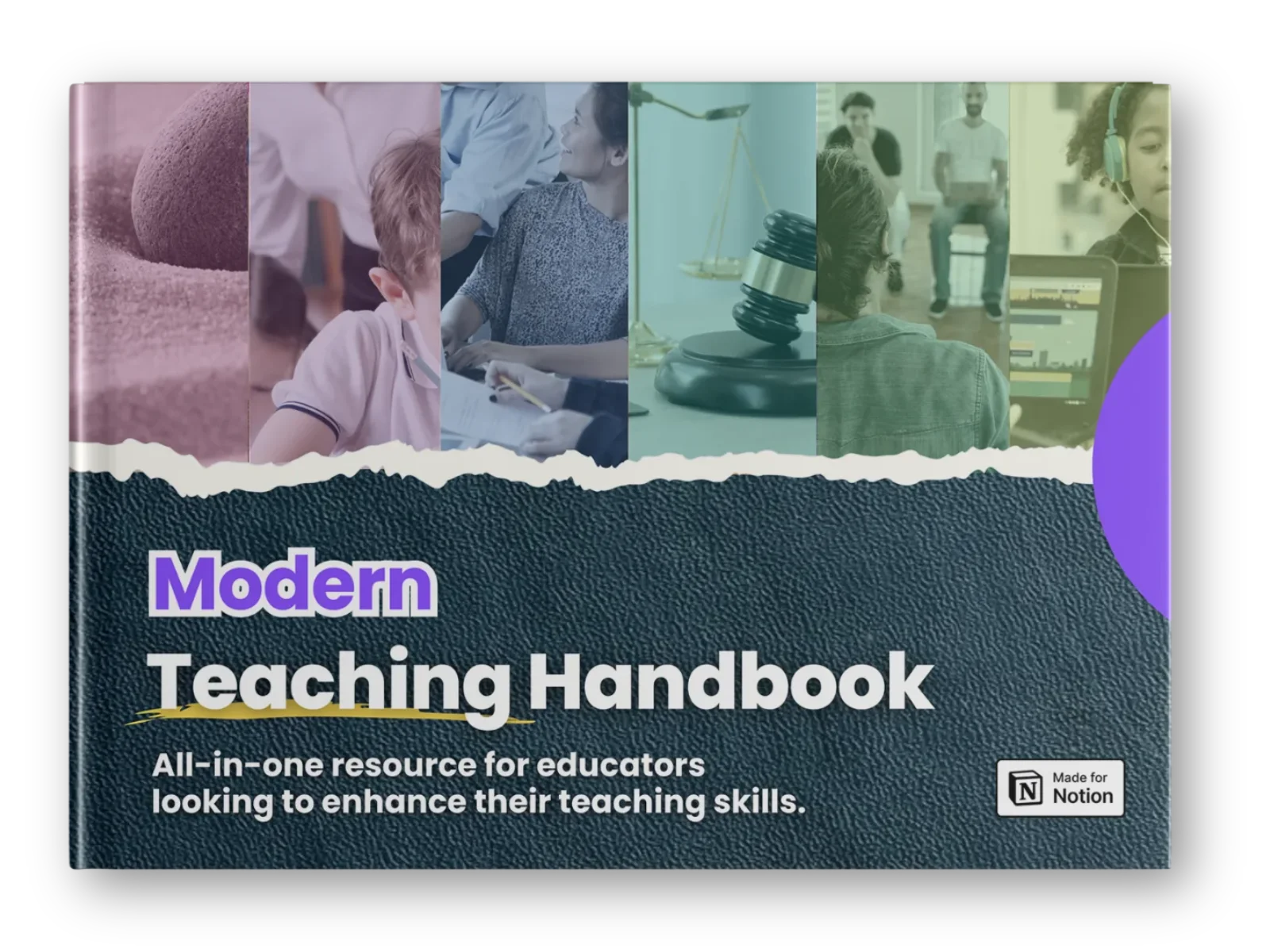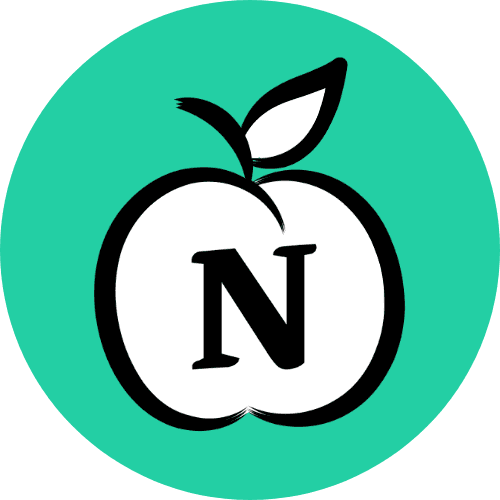Modern Teaching Handbook
Master modern education with the all-in-one resource for educators. Get your free copy now!



Redefining Success Metrics in Schools Beyond the Bell Curve
Redefining Success Metrics in Schools Beyond the Bell Curve
Redefining Success Metrics in Schools Beyond the Bell Curve

Article by
Milo
ESL Content Coordinator & Educator
ESL Content Coordinator & Educator
All Posts
In the ever-evolving landscape of global education, the pursuit of excellence remains a constant. Yet, the definition of excellence itself is undergoing a profound transformation. As societies grapple with rapid technological advancements and shifting economic paradigms, the traditional markers of academic success are being called into question.
This reassessment of educational benchmarks reflects a broader societal shift. The skills and knowledge that once guaranteed success in the workplace are no longer sufficient.
Educators worldwide are recognizing the need for a more holistic approach to student development, one that goes beyond conventional metrics and standardized tests. For seasoned teachers and educational professionals, this paradigm shift presents a challenge and an opportunity.
In the ever-evolving landscape of global education, the pursuit of excellence remains a constant. Yet, the definition of excellence itself is undergoing a profound transformation. As societies grapple with rapid technological advancements and shifting economic paradigms, the traditional markers of academic success are being called into question.
This reassessment of educational benchmarks reflects a broader societal shift. The skills and knowledge that once guaranteed success in the workplace are no longer sufficient.
Educators worldwide are recognizing the need for a more holistic approach to student development, one that goes beyond conventional metrics and standardized tests. For seasoned teachers and educational professionals, this paradigm shift presents a challenge and an opportunity.
Modern Teaching Handbook
Master modern education with the all-in-one resource for educators. Get your free copy now!

Modern Teaching Handbook
Master modern education with the all-in-one resource for educators. Get your free copy now!

Modern Teaching Handbook
Master modern education with the all-in-one resource for educators. Get your free copy now!

The Evolution of Educational Assessment
Educational evaluation has transformed since its inception. From subjective teacher observations, it shifted to standardized quantification in the late 19th century, influenced by industrial efficiency principles.
The current letter grading system commonly used in the United States originated in the mid-19th century. Institutions like Yale and Harvard experimented with various point and percentage-based systems during this period.
By 1897, Mount Holyoke College, a women's college, was credited with developing the foundation for the modern letter grading scale (A-F) we know today.
Globally, alternative paradigms have emerged. Finland eschews standardized testing for formative assessments, while Singapore incorporates project-based evaluations.
Singapore's education system has evolved from rote learning to emphasize conceptual understanding and problem-based learning. It employs flexible "banding" instead of rigid tracking, allowing students to mix classes based on aptitude.

Recent initiatives focus on customized programs, professional development for teachers, and promoting lifelong learning through self-directed opportunities both in and out of school.
The International Baccalaureate program employs criterion-referenced assessment. It evaluates students against predefined objectives rather than peer comparisons.
A growing coalition of educators and policymakers advocates for comprehensive reform. They argue that traditional systems reinforce disparities and inadequately prepare students for modern workforce demands. They emphasize assessing creativity, problem-solving, and emotional intelligence.
The imperative for educational innovation is underscored by recent data on parental satisfaction in the United States. A significant 64% of parents expressed a desire for more information regarding educational options for their children.
Moreover, 72% of parents wanted alternative K-12 institutions for at least one of their children in 2023, representing a 35% increase from 2022. These statistics illuminate a growing dissonance between current educational paradigms and parental expectations.
Advancing Educational Leadership
Educators stand at the forefront of educational transformation and their classroom experience provides invaluable insights into the efficacy of current practices. This unique perspective positions teachers as potential catalysts for systemic change when equipped with advanced knowledge and skills.
Advanced degrees in education, such as doctoral programs, offer educators a chance to amplify their influence on policy and practice. These programs, increasingly available in flexible online formats, allow working professionals to pursue higher education without interrupting their careers.
For instance, an online EdD in higher education provides a comprehensive curriculum that blends theoretical foundations with practical applications. Such programs develop crucial competencies in strategic planning and organizational change management.
According to Rockhurst University, these transformative programs empower educators to become architects of change in higher education. By delving into historical and contemporary educational frameworks, participants gain the insights needed to navigate today's complex educational landscape.
Graduates emerge ready to challenge the status quo, implement evidence-based reforms, and shape the future of learning institutions.
These teacher-leaders with their unique blend of classroom experience and advanced academic training can advocate effectively for holistic, student-centered educational practices.
Holistic Approaches to Student Evaluation
Comprehensive student assessment transcends traditional academic metrics. It encompasses a multifaceted evaluation of learner capabilities. This approach integrates cognitive, social, and emotional dimensions, providing a nuanced portrait of student development.
Key components include adaptive problem-solving skills, interpersonal communication efficacy, and emotional regulation proficiency.
Implementing soft skill assessments requires sophisticated rubrics that quantify qualitative attributes. For instance, the Social and Emotional Learning Assessment Measures (SELAMs) framework offers a structured approach to evaluating interpersonal competencies.
Similarly, emotional intelligence quotient (EQ) assessments can be adapted for educational contexts and provide valuable insights into students' self-awareness and social acumen.
Several institutions have successfully adopted holistic evaluation models. In the United States, the Mastery Transcript Consortium has pioneered a credit-based system. It emphasizes skills mastery over grade point averages, garnering participation from multiple schools nationwide.
These innovative approaches offer a more comprehensive evaluation of student potential, aligning educational assessment with the diverse demands of contemporary society.
Technology-Driven Assessment Techniques
Artificial Intelligence (AI) and machine learning algorithms are revolutionizing student evaluation through adaptive assessment models. These systems analyze performance patterns in real time, tailoring questions to individual learning trajectories.
For instance, some AI-powered platforms utilize Item Response Theory to adjust difficulty levels, providing a more accurate representation of student capabilities.
Data analytics plays a crucial role in tracking student progress. According to TechTarget, Learning Management Systems (LMS) can be employed to assess progress. These systems use sophisticated data visualization tools to generate comprehensive learner profiles.
These profiles aggregate performance metrics across various assessment types, enabling educators to identify trends and intervene proactively.
However, the integration of technology in assessment raises ethical concerns. The collection and analysis of vast amounts of student data necessitate robust privacy safeguards.
Institutions must navigate the complex landscape of data protection regulations, such as FERPA in the United States, to ensure student information remains secure.
The Role of Self-Assessment and Peer Evaluation
Self-assessment and peer evaluation methodologies are gaining traction as powerful tools in modern educational frameworks. These approaches foster metacognitive skills, enabling students to analyze their learning processes and outcomes.
The Self-Regulated Learning (SRL) model, is one such approach. This theory emphasizes three core components: metacognition, motivation, and strategic action. It cultivates learners who understand their cognitive processes, remain resilient, and apply diverse learning strategies to meet varied task demands.
Peer-to-peer evaluations offer multifaceted benefits, including enhanced critical thinking and collaborative skills. The Calibrated Peer Review (CPR) system, for instance, utilizes a multi-stage process where students evaluate standardized work before assessing peers, improving evaluation accuracy.
However, potential pitfalls exist. Subjective biases and varying levels of student expertise can impact assessment quality. To mitigate these challenges, educators can employ rubric-based evaluation systems and provide comprehensive training on assessment criteria.
Integrating these methods into curricula requires a systematic approach. Strategies include incorporating reflective journals, implementing peer feedback workshops, and utilizing digital platforms to facilitate anonymous peer reviews.
By balancing self and peer assessments with traditional evaluation methods, educators can cultivate a more comprehensive and engaging learning environment.
FAQs
1. What are the benefits of a holistic approach to student evaluation?
Holistic assessments go beyond grades; they evaluate social-emotional skills and critical thinking alongside academics. This provides a more complete picture of student strengths and weaknesses, allowing for targeted support and fostering well-rounded individuals.
2. How can technology be used to improve student assessment?
AI tailors assessments to individual learning, offering a more accurate picture of student capabilities. Learning Management Systems track progress over time, allowing educators to identify learning gaps and intervene proactively.
3. What are some challenges associated with self and peer assessment?
Subjectivity and varying levels of expertise can impact the accuracy of self and peer evaluations. However, rubrics and training on assessment criteria can help mitigate these biases and ensure consistent evaluation practices.
The traditional focus on grades fails to prepare students for the demands of the modern world. Success metrics must encompass critical thinking, problem-solving, and social-emotional skills. This requires a shift toward holistic assessments, innovative technologies, and self-directed learning.
This system empowers educators to cultivate well-rounded individuals who can thrive in the 21st century. The goal isn't just about changing how we measure success. It is to create a future where every student has the tools they need to reach their full potential.
The Evolution of Educational Assessment
Educational evaluation has transformed since its inception. From subjective teacher observations, it shifted to standardized quantification in the late 19th century, influenced by industrial efficiency principles.
The current letter grading system commonly used in the United States originated in the mid-19th century. Institutions like Yale and Harvard experimented with various point and percentage-based systems during this period.
By 1897, Mount Holyoke College, a women's college, was credited with developing the foundation for the modern letter grading scale (A-F) we know today.
Globally, alternative paradigms have emerged. Finland eschews standardized testing for formative assessments, while Singapore incorporates project-based evaluations.
Singapore's education system has evolved from rote learning to emphasize conceptual understanding and problem-based learning. It employs flexible "banding" instead of rigid tracking, allowing students to mix classes based on aptitude.

Recent initiatives focus on customized programs, professional development for teachers, and promoting lifelong learning through self-directed opportunities both in and out of school.
The International Baccalaureate program employs criterion-referenced assessment. It evaluates students against predefined objectives rather than peer comparisons.
A growing coalition of educators and policymakers advocates for comprehensive reform. They argue that traditional systems reinforce disparities and inadequately prepare students for modern workforce demands. They emphasize assessing creativity, problem-solving, and emotional intelligence.
The imperative for educational innovation is underscored by recent data on parental satisfaction in the United States. A significant 64% of parents expressed a desire for more information regarding educational options for their children.
Moreover, 72% of parents wanted alternative K-12 institutions for at least one of their children in 2023, representing a 35% increase from 2022. These statistics illuminate a growing dissonance between current educational paradigms and parental expectations.
Advancing Educational Leadership
Educators stand at the forefront of educational transformation and their classroom experience provides invaluable insights into the efficacy of current practices. This unique perspective positions teachers as potential catalysts for systemic change when equipped with advanced knowledge and skills.
Advanced degrees in education, such as doctoral programs, offer educators a chance to amplify their influence on policy and practice. These programs, increasingly available in flexible online formats, allow working professionals to pursue higher education without interrupting their careers.
For instance, an online EdD in higher education provides a comprehensive curriculum that blends theoretical foundations with practical applications. Such programs develop crucial competencies in strategic planning and organizational change management.
According to Rockhurst University, these transformative programs empower educators to become architects of change in higher education. By delving into historical and contemporary educational frameworks, participants gain the insights needed to navigate today's complex educational landscape.
Graduates emerge ready to challenge the status quo, implement evidence-based reforms, and shape the future of learning institutions.
These teacher-leaders with their unique blend of classroom experience and advanced academic training can advocate effectively for holistic, student-centered educational practices.
Holistic Approaches to Student Evaluation
Comprehensive student assessment transcends traditional academic metrics. It encompasses a multifaceted evaluation of learner capabilities. This approach integrates cognitive, social, and emotional dimensions, providing a nuanced portrait of student development.
Key components include adaptive problem-solving skills, interpersonal communication efficacy, and emotional regulation proficiency.
Implementing soft skill assessments requires sophisticated rubrics that quantify qualitative attributes. For instance, the Social and Emotional Learning Assessment Measures (SELAMs) framework offers a structured approach to evaluating interpersonal competencies.
Similarly, emotional intelligence quotient (EQ) assessments can be adapted for educational contexts and provide valuable insights into students' self-awareness and social acumen.
Several institutions have successfully adopted holistic evaluation models. In the United States, the Mastery Transcript Consortium has pioneered a credit-based system. It emphasizes skills mastery over grade point averages, garnering participation from multiple schools nationwide.
These innovative approaches offer a more comprehensive evaluation of student potential, aligning educational assessment with the diverse demands of contemporary society.
Technology-Driven Assessment Techniques
Artificial Intelligence (AI) and machine learning algorithms are revolutionizing student evaluation through adaptive assessment models. These systems analyze performance patterns in real time, tailoring questions to individual learning trajectories.
For instance, some AI-powered platforms utilize Item Response Theory to adjust difficulty levels, providing a more accurate representation of student capabilities.
Data analytics plays a crucial role in tracking student progress. According to TechTarget, Learning Management Systems (LMS) can be employed to assess progress. These systems use sophisticated data visualization tools to generate comprehensive learner profiles.
These profiles aggregate performance metrics across various assessment types, enabling educators to identify trends and intervene proactively.
However, the integration of technology in assessment raises ethical concerns. The collection and analysis of vast amounts of student data necessitate robust privacy safeguards.
Institutions must navigate the complex landscape of data protection regulations, such as FERPA in the United States, to ensure student information remains secure.
The Role of Self-Assessment and Peer Evaluation
Self-assessment and peer evaluation methodologies are gaining traction as powerful tools in modern educational frameworks. These approaches foster metacognitive skills, enabling students to analyze their learning processes and outcomes.
The Self-Regulated Learning (SRL) model, is one such approach. This theory emphasizes three core components: metacognition, motivation, and strategic action. It cultivates learners who understand their cognitive processes, remain resilient, and apply diverse learning strategies to meet varied task demands.
Peer-to-peer evaluations offer multifaceted benefits, including enhanced critical thinking and collaborative skills. The Calibrated Peer Review (CPR) system, for instance, utilizes a multi-stage process where students evaluate standardized work before assessing peers, improving evaluation accuracy.
However, potential pitfalls exist. Subjective biases and varying levels of student expertise can impact assessment quality. To mitigate these challenges, educators can employ rubric-based evaluation systems and provide comprehensive training on assessment criteria.
Integrating these methods into curricula requires a systematic approach. Strategies include incorporating reflective journals, implementing peer feedback workshops, and utilizing digital platforms to facilitate anonymous peer reviews.
By balancing self and peer assessments with traditional evaluation methods, educators can cultivate a more comprehensive and engaging learning environment.
FAQs
1. What are the benefits of a holistic approach to student evaluation?
Holistic assessments go beyond grades; they evaluate social-emotional skills and critical thinking alongside academics. This provides a more complete picture of student strengths and weaknesses, allowing for targeted support and fostering well-rounded individuals.
2. How can technology be used to improve student assessment?
AI tailors assessments to individual learning, offering a more accurate picture of student capabilities. Learning Management Systems track progress over time, allowing educators to identify learning gaps and intervene proactively.
3. What are some challenges associated with self and peer assessment?
Subjectivity and varying levels of expertise can impact the accuracy of self and peer evaluations. However, rubrics and training on assessment criteria can help mitigate these biases and ensure consistent evaluation practices.
The traditional focus on grades fails to prepare students for the demands of the modern world. Success metrics must encompass critical thinking, problem-solving, and social-emotional skills. This requires a shift toward holistic assessments, innovative technologies, and self-directed learning.
This system empowers educators to cultivate well-rounded individuals who can thrive in the 21st century. The goal isn't just about changing how we measure success. It is to create a future where every student has the tools they need to reach their full potential.
Modern Teaching Handbook
Master modern education with the all-in-one resource for educators. Get your free copy now!

Modern Teaching Handbook
Master modern education with the all-in-one resource for educators. Get your free copy now!

Modern Teaching Handbook
Master modern education with the all-in-one resource for educators. Get your free copy now!

Table of Contents
Modern Teaching Handbook
Master modern education with the all-in-one resource for educators. Get your free copy now!
2024 Notion4Teachers. All Rights Reserved.
2024 Notion4Teachers. All Rights Reserved.
2024 Notion4Teachers. All Rights Reserved.
2024 Notion4Teachers. All Rights Reserved.







